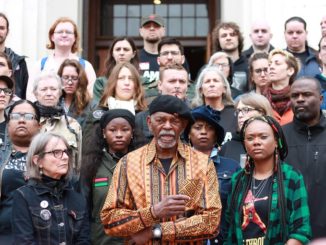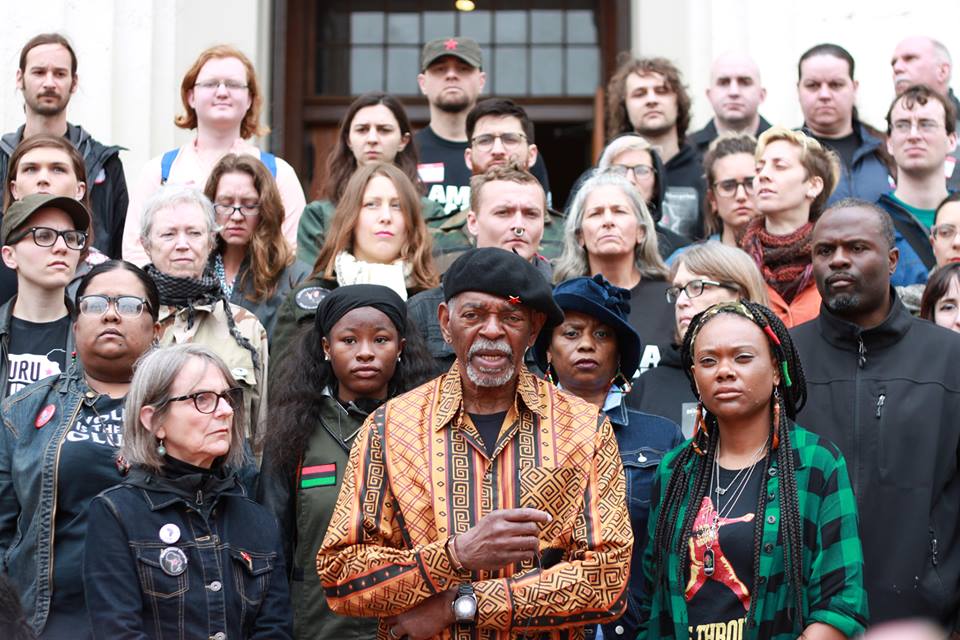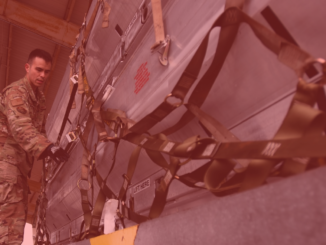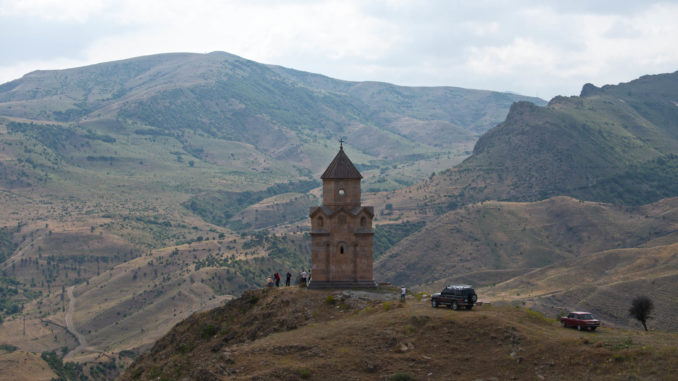
Armenia, a landlocked Caucasus nation-state of around 3 million people appears in a hopeless position. Following defeat in the 44-day war against Azerbaijan last autumn, the country remains stuck in the Russian geopolitical orbit, and has been forced to make painful concessions to its arch enemy, Azerbaijan.
On June 20, Armenia held parliamentary elections that led to the victory of the Civil Contract Party, whose leader is Acting Armenian Prime Minister Nikol Pashinyan. Although he is seen by many Armenians as a traitor, given he failed to preserve Armenian control over Nagorno-Karabakh—a mountainous territory in Azerbaijan that ethnic Armenians have controlled since 1994—Pashinyan’s party won 54 percent of the vote. The opposition Armenia Alliance, led by former President Robert Kocharyan, garnered a distant second with 21 percent. Why did Armenians vote for the person who signed the de facto capitulation to Azerbaijan on November 10?
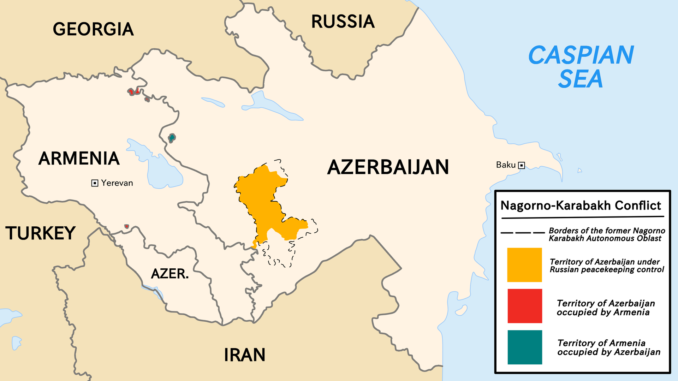
Choosing Between Traitor and Old Guard

From the perspective of an average Armenian voter, the choice they had was either “traitor” Pashinyan, who came to power in 2018 following the so-called “Velvet Revolution,” or Kocharyan, who represents the overthrown corrupted old guard.
According to Armenian analyst David Arutyunov, the opposition did not offer any practical alternative for resolving the issues of demarcation, a burning question in the country. Indeed, in May, Armenian authorities accused Azerbaijan’s army of advancing more than 3 kilometres (2 miles) into southern Armenia. They claimed the Azeri state was trying to lay siege on Lake Sev Lich (Black Lake), shared by the two countries. In other words, Armenia had lost control not only over most of Nagorno-Karabakh, but also over certain parts of the Republic of Armenia.
As Arutyunov points out, Azerbaijan likely will keep pressuring Armenia until the end in order to get as many concessions as possible in the process of resolving the border demarcation.
Some Armenian officials have announced Russian border guards will be deployed to those areas where Azerbaijani units allegedly advanced. At this point, however, it is highly uncertain how the border will be protected after demarcation—will the Russian troops permanently stay there, or will Armenia and Azerbaijan continue to guard borders on their own? As a result of the 44-day war, some 2,000 Russian peacekeeping troops were deployed to Nagorno-Karabakh to protect the region’s capital, Stepanakert, and the surrounding area, which is the only portion of the territory that is still de facto under Armenian control. From the Armenian perspective, Russian peacekeepers are seen as the only guardian of the remaining Armenian population in the region. Moreover, Armenia has become so dependent on Moscow, it expects the Kremlin to protect not just ethnic Armenians in Nagorno-Karabakh, but the borders of the Republic of Armenia, too.
Russia’s Responsibility
Russia, on the other hand, is obligated to defend Armenia. The Caucasus country is a member of the Moscow-led Collective Security Treaty Organization (CSTO), which is often described as a Russian version of NATO, having come into being after the former Soviet Union came apart. Other CSTO members include Belarus, Tajikistan, Kyrgyzstan and Kazakhstan. However, during the war, Russia refused to provide help to its nominal ally, Armenia. According to Key Article 4 of the Treaty, “If one of the State Parties is subjected to aggression by any state or group of states, this will be considered aggression against all States Parties to this Treaty.” The problem for Armenia is that in 2020, Azerbaijan did not attack Armenia itself, but Armenian-backed forces in Nagorno-Karabakh. That is why Moscow hesitated to directly intervene. But in May 2021, following the border incidents, Pashinyan wrote a letter to Russian President Vladimir Putin, asking for military assistance. To this day, however, no such aid has been provided.
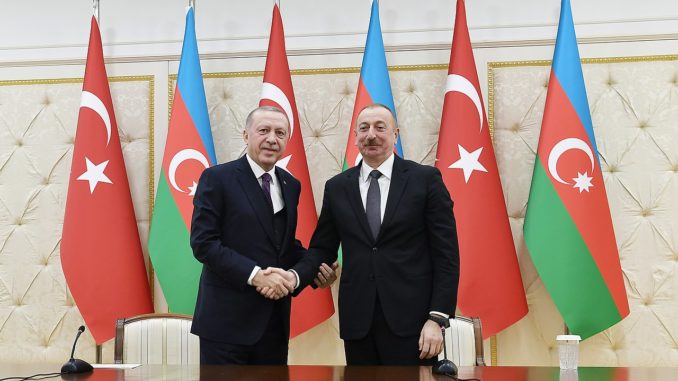
Meanwhile, Azeri President Ilham Aliyev and his Turkish counterpart, Recep Tayyip Erdoğan, have signed a protocol of alliance in a bid to further strengthen their ties. “In the event of a third state’s threat to the independence or territorial integrity of any of the parties, the parties will provide necessary assistance to each other,” the protocol stipulates.
Turkey’s Role
Even before the two countries became formal allies, Turkey supplied Azerbaijan with modern, sophisticated weapons, including the Turkish-made Bayraktar drones that proved to be a game changer in the Nagorno-Karabakh War. Russia promises to arm Armenia, although it remains unclear what prevented the Kremlin from selling modern weapons to its ally before the war broke out. Over the years, Russia aimed to preserve good relations with both Azerbaijan and Armenia and at the same time to keep playing the role of the regional arbiter. However, indications suggest the Kremlin prioritized lucrative business and energy ties with Azerbaijan than its nominal alliance with Armenia.
Although the Armenian leadership may have felt because of Moscow’s unwillingness, it hardly has a choice but to keep playing the Russian card. The country depends on Russia economically, politically and militarily.
According to the Moscow-brokered peace deal, signed in November between Pashinyan and Aliyev, Azerbaijan will be able to cross to its exclave Nakhchivan—bordering Armenia, Turkey and Iran—through Armenian territory, and the Russian Federal Security Service will secure roads. Such an action could undermine remnants of Armenia’s sovereignty in the south, primarily in the area bordering Iran.
Azerbaijan, on the other hand, has insisted on the construction of the Nakhchivan corridor, also known as Zangezur Corridor, which would effectively connect the Nakhchivan Autonomous Republic with mainland Azerbaijan. Given that Azerbaijan, as the clear victor, has an upper hand to the defeated Armenia, sooner or later Armenia will have to agree to the Azeri terms and conditions regarding this transregional project. Thus, it is not surprising that Pashinyan, celebrating his election victory, said, “All agreements will be fulfilled.” His room for political maneuvers vis-à-vis Azerbaijan is rather limited.
In the short term—at least until 2025, when the 5-year mandate of Russian peacekeepers in Nagorno-Karabakh expires—Russia will remain the dominant regional actor. In the mid and long term, Turkey is expected to improve its positions in the Caucasus, and possibly build a military base not far from the Russian border. Azerbaijan already benefited from its military ties with Turkey, while Armenia proved to be collateral damage in a wider geopolitical game played by Russia and Turkey.
And the game is far from over.
Nikola Mikovic is a Serbia-based contributor to CGTN, Global Comment, Byline Times, Informed Comment, and World Geostrategic Insights, among other publications. He is a geopolitical analyst for KJ Reports and Global Wonks.


